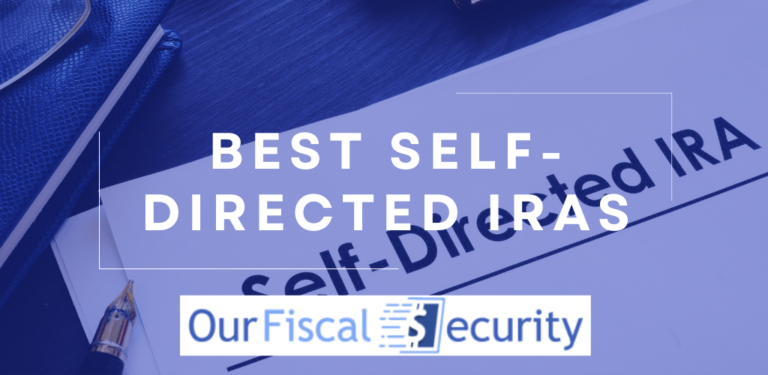401k to Gold IRA Rollover Guide
Investing in gold IRAs is one of the best moves you can do to protect your retirement savings. Even though an employer-sponsored account like the 401(k) is already an excellent option for people, it’s often limited to your investment options.
Those who want to invest in physical precious metals like gold won’t be able to do it with a 401(k), as most of these plans don’t allow direct investments in them. If you want to invest in physical gold, you must consider other options like a self-directed IRA.
What if you already have a 401(k) and want to roll your funds over to a new precious metals IRA? The great news is that it may be possible. Gold IRA rollovers are more common than you may think, as they have proven to be a great way to make the most out of your retirement savings without facing many penalties.
Whether you want to start your gold IRA investments because you want to diversify your portfolio or because you left your former employer, there’s a series of steps you must follow to avoid issues. You can hire a financial advisor to help you create a plan that aligns with your goals, but first, let’s dive deep into the gold IRA rollover process.
How does a 401k-gold IRA rollover work? Find out everything you should know about the process here.
Understanding a Gold IRA
Let’s first dive into the concept of the gold IRA. Even though it’s not hard to understand these accounts, there are a few things you should keep in mind before starting your rollover.
Defining Gold IRA
A gold IRA is a retirement account you can use to buy physical gold or other precious metals, as long as they’re approved by the IRS.
When you invest in a gold IRA, you must follow certain guidelines to ensure you don’t get penalized. It’s also recommended to seek help from an advisor to avoid making mistakes, such as investing in non-approved precious metals.
Most of the time, gold IRAs are “self-directed IRAs,” which means you’ll have more investment options compared to other plans.
You can open two main types of accounts: Traditional and Roth IRAs.
The traditional IRA is the most common option, and it’s funded with pre-tax dollars. Roth IRAs, on the other hand, are funded with after-tax dollars.
Both help you protect your retirement savings. The main difference is the tax benefits you get from them. Traditional IRAs allow you to grow your earnings tax-deferred, meaning you’ll pay taxes when withdrawing funds.
Roth IRAs grow your earnings tax-free, so you’ll pay taxes when contributing. This means you can make tax-free withdrawals later.
Gold IRA Benefits
There are plenty advantages of gold IRA offered to those wanting to protect their retirement savings. Compared to a regular 401(k), which is often limited by what your employer offers or the assets you can invest in, a gold IRA offers more alternatives.
Generally speaking, a gold IRA can help you with three main things:
- Reducing your tax burden
- Protecting your portfolio from inflation
- Protecting your estate
IRA-Approved Precious Metals Investments
We’ve mentioned several times that you must invest in IRA-approved precious metals, but what does that mean?
Simply put, the IRS has certain guidelines about what you can buy with your IRA. Investing in anything else will likely result in a penalty.
Here’s an overview of all the requirements you must meet to avoid issues with your investments:
- Gold must be at least 99.5% pure.
- Silver must be 99.9% pure.
- Platinum and palladium must be 99.95% pure.
Of course, many assets fit the criteria, so it shouldn’t be hard to find an excellent investment strategy for you. Here are some of the most commonly traded precious metals approved by the IRS:
Gold
- American Gold Eagle
- American Buffalo
- Australian Nugget
- Austrian Philharmonic
- Canadian Maple Leaf
Silver
- American Silver Eagle
- Austrian Philharmonic
- Canadian Maple Leaf
Platinum
- Australian Koala
- Canadian Maple Leaf
Palladium
- Accredited bars
Make sure you seek help from a professional advisor so that you buy the perfect asset for your portfolio.
Gold IRA: An Inflation Hedge
An inflation hedge is an investment that protects you against a currency’s devaluation. In other words, these are assets that tend to maintain their value during inflation. Some of these even become more valuable.
Gold is viewed globally as an inflation hedge, which is why many investors prefer it over other precious metals. This asset often increases in value during times when the purchasing power of the dollar goes down.
Does this mean you should invest in gold to protect your retirement savings? Not necessarily.
However, if you’re willing to go through the rollover process with a professional, we’d say gold is one of the best assets you can start with.
Gold IRA: A Diversification Tool
Another benefit of investing in physical gold is its diversification capabilities. Diversification implies allocating your capital strategically to reduce your risk exposure.
“Putting all your eggs in one basket” isn’t always a great option, no matter how stable the asset is. If that investment were to decline in value for any reason, your retirement savings would be in danger.
When you diversify your portfolio, however, you’ll still have the support of other investments, allowing you to recover.
Gold is an excellent asset to diversify your portfolio since it remains stable over time and could also produce earnings eventually.

Gold IRA Rollover from 401(k)
Now that we’ve covered the basics of gold IRAs, let’s talk about how you can open your account and roll your funds over.
As you’ll see below, the process isn’t hard. All it takes is a bit of patience and the will to learn.
Direct vs. Indirect Rollover: An Overview
We have two options when it comes to a 401(k) rollover: Direct and indirect rollovers.
A direct rollover is the easiest option for most investors. Here, you’ll set up a transfer between your 401(k) and your new IRA with a professional. The main benefit is that you don’t have to do anything besides waiting for the transfer to go through.
Indirect rollovers are slightly riskier and aren’t recommended unless you know what you’re doing. When you set up this rollover, the 401(k) funds will get paid directly to you.
Once you get your money, you’ll have to deposit the full amount into your IRA within 60 days. If you miss the deadline, you’ll risk having to pay early withdrawal penalties, income taxes, or an excess contribution tax in some cases.
Something to keep in mind about the indirect rollover is that your employer may withhold up to 20% of the amount to pay taxes due. That 20% will get returned as a tax credit for the year when you complete your rollover process.
Even though your employer will withhold a percentage of your funds, you must still deposit the full amount. Let’s look at an example: You got paid a $10,000 rollover distribution from your plan, and your employer withheld 20%, which is $2,000.
If you only pay the $8,000 you have left, the other $2,000 owed would be considered a distribution, which is subject to income taxes. Additionally, you’d have to pay a 10% penalty.
In other words, you have to pay the entire amount you took out of your 401(k) to avoid any extra fees and penalties. Of course, you’ll get your $2,000 back when you complete the rollover.
Steps to Execute 401k to Gold IRA Rollover
Now that you’ve decided which type of rollover benefits you the most, let’s go over the rest of the process:
Selecting a Reliable Gold IRA Company
Your first step is to choose one of best gold IRA companies. Keep in mind that each company offers different services, fees, and experience levels.
Make sure to do research and read customer reviews until you find the right fit for your needs. Going for the first company you find will likely result in unnecessary expenses and potential penalties.
Opting for a Self-Directed Custodian
You must complete some paperwork before opening a self-directed IRA account. The process involves submitting documents and ensuring you have enough funds to process the set-up.
We recommend you hire a self-directed custodian who can handle that process on your behalf. These experts will guide you through the rollover process and ensure you have all the boxes checked.
Opening an Account with Gold IRA Custodian
Your custodian is responsible for opening your gold IRA the right way. This will help minimize risks and get your account ready sooner.
If you have any questions surrounding the account set-up, now is the best time to ask your custodian.
Implementing the Rollover
Once all the paperwork is done, and you’ve chosen the right company to work with, you can start the rollover process.
When you’re ready to begin, tell your current 401(k) custodian that you want to transfer the funds to an IRA. They will ask you to fill in the paperwork mentioned before.
Remember, you will have to follow slightly different steps depending on whether you chose a direct or indirect rollover.
Buying Gold for IRA
You’ll be ready to buy precious metals once you’ve funded your IRA.
If you want to make the right decision, research the gold market and consider the different types of gold you can buy. You can seek advice from an independent advisor to determine the best option to protect your retirement savings.
Once you’re ready to place your order, you can tell your custodian to begin the process of acquiring gold on your behalf. The gold will get shipped to a storage facility approved by the IRS, and your custodian will be responsible for managing it until you’re ready to make your withdrawals.
Gold IRA Rollover: Potential Risks
Not everything is perfect when it comes to a gold IRA, which is why you must take your time and determine if this is a reasonable option for your retirement plan.
Below is a list of all the potential risks you’ll face when doing a rollover:
- Fees: You’ll likely pay fees to your custodian and the depository for your gold. In most cases, you’ll pay annually, and although the fees aren’t that significant compared to the safety you’ll get with your investments, these are still worth considering.
- Logistics: Unfortunately, you must do the “research part” on your own. This means you’re responsible for finding a reputable custodian, gold IRA company/dealer, and depository. Some IRA companies, however, have partnerships with IRS-approved depositories, which might make your work slightly easier.
- Ownership: You won’t own your gold physically, at least until you retire. If you were to take direct possession of your precious metals, that would be considered illegal by the IRS, leading to penalties and a higher tax burden.
- Purity Standards: The IRS specified strict rules surrounding the purity of the precious metals you buy. If you want to avoid getting penalized, you must pay attention to these regulations.

Tax Implications of Gold IRA
One of the most important factors to consider when opening a gold IRA is its tax implications. As mentioned above, these accounts come with many benefits for investors, but you’ll lose most of them if you don’t manage your assets correctly.
Here’s an overview of everything you should consider surrounding taxes and your gold IRA account:
Taxation of Gold in an IRA
Let’s dive into the implications of gold IRA taxation.
Investors have to pay taxes at different points of their investment journey depending on the type of IRA they choose.
If you open a traditional IRA, you don’t have to pay taxes when contributing. Instead, you’ll pay at the time of making a withdrawal.
Roth IRAs work the other way around. You’ll pay taxes each time you contribute, but all your funds will grow tax-free. In other words, you won’t have to worry about these liabilities when retiring.
Both options are great, so the decision is up to you. If you think you’ll be in a higher tax bracket when you retire, for example, you would benefit the most from a Roth IRA. On the contrary, if you think you’ll drop to a lower bracket once you reach 59 ½ and are ready to withdraw funds, you should open a traditional IRA.
Tax-Free 401k to Gold Conversion
You can complete your 401(k)-to-gold-IRA rollover without paying any taxes.
When comparing gold IRA and traditional 401k, the safest route is to consider a direct rollover. You don’t have to make the transfer yourself, ensuring there’s no room for error.
Those who go for an indirect rollover have a higher risk of making a mistake since they’re responsible for depositing their funds into the IRA. If the investor were to miss the 60-day deadline or deposit the wrong amount, they would get penalized.
Regardless of the method you prefer, make sure to complete your rollover without any hiccups, and you can guarantee a tax-free process.
Tax Penalties for Early Withdrawal
Early withdrawals may result in penalties regardless of the type of IRA you opened.
The main rule for withdrawals is that you must wait until you’re 59 ½ to make them. If you fail to follow this rule, you’ll be subject to a 10% penalty by the IRS.
Moreover, if you’re funding your account with pre-tax dollars, your distributions could be taxed as ordinary income.
When you reach the appropriate age to withdraw, you can do it as many times as you want without any restrictions.
Roth IRAs have an extra rule, though. Besides the age requirements, you must ensure that at least five years have passed from the tax year of your first contribution. Failing to account for this will result in a penalty.
You could make early withdrawals without penalty if you meet the criteria for an exception. These are the most common cases:
- Disability
- Qualified higher education fees
- Specific medical expenses
- First-time home purchase
- Qualified reservist distribution
- Qualified military-related distributions
- Qualified disaster-related distributions
Considerations for Gold IRA Rollover
We’ll summarize the key aspects you should consider when opening your gold IRA to make things easier.
Remember, the key is to play it safe and not rush anything. As long as you take the time to investigate and invest in a reputable advisor, you’ll get the best results.
Risks of Self-Directed IRAs
Let’s look at all the risks you could face when opening a self-directed IRA. While there’s nothing to be too scared about, you must keep these in mind if you want to get all the benefits of these accounts:
- Not all alternative investments come with a low risk.
- You must pay for advice and a specialized custodian. However, most custodians will only agree to handle your paperwork and not to give you advice. In other words, you must hire an independent advisor.
- Some “IRA companies” are out there to scam people, so you must do research before signing up for any of these.
- You must pay plenty of fees in some cases.
- Unless you open a Roth IRA, you must take “Required Minimum Distributions” once you turn 73.
Gold IRA Account: Minimum Investment Requirement
Your minimum investment requirement depends on the company you open the account with.
Most of the time, you’ll have to open your account with a minimum of $5,000-$20,000. Keep in mind that some companies may charge even more.
If you want to take it easy at first, try to look for a reputable company that doesn’t go overboard with their minimum investment requirements.
Gold IRA Withdrawal Rules
Please consult our article if you want to begin understanding withdrawal basics from IRA in more detail. For now, here’s an overview of all the withdrawal rules we’ve mentioned throughout this page:
- You can only take distributions from your gold IRA once you reach 59 ½ years of age.
- If you opened a Roth IRA, you must also wait until five years have passed from the tax year of your first contribution.
- Traditional IRAs require you to take RMDs as soon as you turn 73.
- Roth IRAs don’t require you to take RMDs.

Evaluating Storage and Security of Gold
It’s crucial to work with custodians and other professionals who can guarantee the safety of your gold assets.
The IRS already requires investors to hold gold and other precious metals in approved depositories, so all it takes is to find the right one. As with gold IRA companies/dealers, most depositories charge different fees and offer unique benefits.
You must find a depository that follows all IRS rules accordingly and ensures enough safety for your gold until you retire.
Some IRA companies have partnerships with reputable depositories, so you can ask them if they’re the right fit for your gold.
You should never try to store your gold at home. Doing it will increase the risk of theft, and it’s also illegal by IRS standards. Trying to store your assets in any part of your house will likely result in penalties.
One of the “disadvantages” of a gold IRA is the fees you’ll have to pay to store your assets correctly.
If you want to minimize these fees as much as possible, you should be aware of what you’re paying for, which isn’t always easy.
Not all companies are transparent with their pricing structure, so it’s up to you to do research and find out how much you’re paying for each service.

Understanding Fees and Charges
There are three main gold IRA fees you’ll pay:
- Set-Up Fees: Many gold IRA companies will charge you a one-time set-up fee. It’s necessary to ensure there are no errors during the process and that you’re following all IRS rules. Remember, not all companies will charge the same price. If you know where to look, you will definitely find something worth your time and money.
- Annual Fees: You’ll have to pay annual fees for administration and maintenance. These are necessary to ensure your account is always compliant with IRS regulations and that there aren’t any problems with your orders. Even though some companies charge these fees monthly, you’ll benefit from annual ones most of the time.
- Storage/Insurance Fees: These fees are meant to cover your gold’s storage and insurance. If something were to go wrong with your assets, you’d be covered by whoever was responsible for storing and managing them.
Sometimes, you’ll have to pay commissions on certain purchases and sales, but that depends on where you decide to make them.
Not all investors have the same goals or budget, so don’t settle for the first gold dealer you find. As long as you work with professionals who meet your criteria, you’ll be on the right track.
Frequently Asked Questions
We hope to have answered all your questions about the gold IRA rollover process above. If not, feel free to check the FAQ section below. It has a few more questions/answers that will help you in your journey to invest in precious metals.
Can I Roll My 401k to a Gold IRA?
You can invest in gold IRAs as long as your 401(k) is eligible. Most of the time, your plan is eligible when it’s from a former employer. 401(k)s from current employers aren’t usually allowed, at least until you leave them.
Besides that, you can roll over your 401(k) to an IRA through a direct or indirect process and protect your retirement savings.
Should I Put My 401k into Gold?
It depends on your financial goals. If you want to diversify your portfolio, a gold IRA investment will be an excellent way to go.
Technically, you could use your 401(k) to invest in certain mutual funds or ETFs that hold either gold or gold mining stocks. However, you won’t be able to invest in physical gold until you open an IRA.
Feel free to contact a financial advisor to determine whether a self-directed gold IRA is a good idea for you.
How Does a Gold IRA Rollover Work?
Simply put, you’ll have to transfer your 401(k) funds to your gold IRA as soon as you open the account.
If you choose a direct rollover, you won’t have to do anything, as the process is handled by an expert. On the other hand, if you go for an indirect rollover, you’ll have 60 days to deposit all the funds into your gold IRA to avoid penalties.
Once you’re done, all that’s left to do is choose your investments and place your order through your custodian.
What Is the Minimum Investment Required to Open a Gold IRA Account?
It depends on the company you decide to work with. While some businesses ask for a few thousand dollars to open your account, others ask you for over $20,000.
The IRS won’t require a minimum to open an IRA, so these amounts will mostly be imposed by the provider/business.
Can I Store the Gold from My Gold IRA at Home?
You can’t store your gold IRA at home if you want to avoid penalties. Not only is storing physical gold at home dangerous because of the high risk of theft, but the IRS specifies in its regulations that these investments must be in the “physical possession of a trustee.”
In other words, if you store your IRA gold at home, the IRS will consider these assets “collectibles,” so you’ll get charged a penalty plus income taxes in some cases.
Conclusion
Precious metals IRAs are excellent for anyone wanting to protect their retirement savings and diversify their portfolios. As long as you find a trustworthy gold IRA company to work with, you shouldn’t have any issues with the rollover.
Remember that a gold IRA rollover isn’t necessarily straightforward all the time, especially under certain conditions. The best way to address your gold investments carefully is to take your time with the planning process and consider hiring a financial advisor.
These professionals know how to deal with your gold IRA without facing penalties and other risks, so don’t hesitate to get as much help as you can for your rollover, and discover how you can prepare for the future with the right gold IRA companies.







